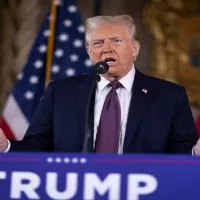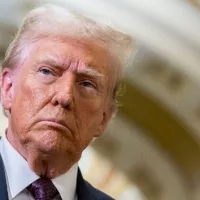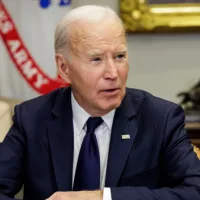(WASHINGTON) — As his time in the White House comes to a close, President Joe Biden has implemented a series of executive orders and rules, trying to cement his policies before Donald Trump returns with the threat of undoing them.
From using provisions in federal law to ban much offshore drilling to commuting the sentences of 37 federal death row inmates, Biden has been determined to accomplish the political goals he set out to do four years ago.
Trump, never one to mince words against his rival, has condemned Biden’s moves, claiming he was hurting his agenda — what he says Americans voted for in November.
“They say we’re going to have a smooth transition. All they do is talk,” the president-elect told reporters Tuesday.
“I’m going to put it back on day one. I’m going to have it revoked on day one. We’ll go immediately if we need to… they try to be sneaky,” he said of Biden’s drilling ban.
Some academic policy experts, however, say Biden’s eleventh-hour decisions are not out of the ordinary, especially when it comes to a change of parties in the White House.
“This is pretty typical. Trump is just complaining about it louder,” Jonathan Hanson, a political scientist and lecturer in statistics at the University of Michigan’s Gerald R. Ford School of Public Policy, told ABC News.
The experts noted that Trump’s claims Biden is tying his hands are far from true as some of Biden’s policies can be overturned and mitigated.
On Friday, the Department of Homeland Security announced the extension of Temporary Protected Status (TPS) for asylum seekers from Venezuela, El Salvador, Sudan, and Ukraine. Over 900,000 current beneficiaries will now have 18-month extensions, according to the order.
TPS is one of the few ways that an administration can protect a large group of migrants without congressional approval, however, it’s also within the DHS secretary’s power to end it. Trump and Vice President-elect JD Vance have vowed to end the program, which Trump attempted to do back during his first administration.
Biden announced earlier in the week a ban on offshore drilling using provisions in the 1953 Outer Continental Shelf Lands Act to push forward with the proposal. Under the act, the policy change can only be reversed through an act of Congress.
Dan Mallinson, a professor of public policy and administration at Penn State Harrisburg, told ABC News that it’s not unusual for administrations to pore through federal laws and regulations to find loopholes for executive orders that can’t be easily overturned.
“In a lot of cases, the executive order will be overturned even if it takes time, so those administrations will look for every win they can in the lame-duck session,” he said.
Mallinson said that Biden’s announcement this week of two national monuments in California which would preserve 840,000 acres from any federal drilling, was also done with the same kind of meticulous planning. He did note that Trump could change the plan by limiting the size of the monuments, which he did during his first term after similar moves by President Barack Obama.
Trump himself issued several of eleventh-hour orders during the last weeks of his first presidency, including one two days before he left office that would have scaled back punishments for regulations, only for Biden to reverse them in his first months in office.
“On the face of it, it’s pretty standard. Biden is not doing anything unusual compared to other presidents. It’s the normal course of things for decades,” Hanson said.
The experts pointed out that Trump also faced a similar situation in his first administration and undid several executive orders and changed various policies instituted by Obama in his first months of office, including his ban on offshore drilling.
Trump’s reversal of Obama’s order, however, was scaled back after then-Florida Gov. Rick Scott, a key Trump ally, raised concerns about how it would affect his state. The ban continued for Florida lands.
“It’s not always crystal clear if executive orders or last-minute policy changes will be reversed by the new president,” Mallison said.
The experts said when it comes to Biden’s moves, what was different is the messaging.
The president has been mostly silent during his lame-duck session and pushed on his policy changes with little fanfare, however, Trump has been making more headlines by sounding off on social media, interviews and other media appearances, Mallison noted.
And while Trump may make claims and boast as if he were in office, Biden still has power until Jan. 20, Mallison said.
“Trump is trying to exploit this mentality, which is wrong, that the government has to operate under the president-elect. But the reality is that, constitutionally, Biden is the president now and he can act on his authority,” he said.
Copyright © 2025, ABC Audio. All rights reserved.













